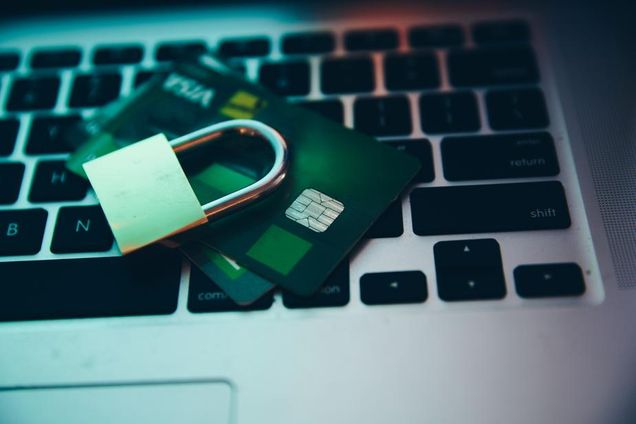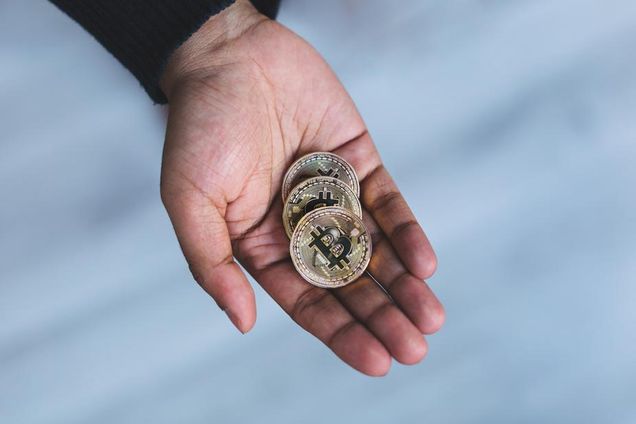
By Tarik Dogru, Makarand Mody, & Christie Leonardi
“A world with little or no intermediaries where there is no need to build trust between people and transactions are completed in seconds. This is the promise of the Blockchain Technology.” -Tarik Dogru
Blockchain technology and its economic, social, and technological implications, mainly in the form of the cryptocurrency Bitcoin, have become hot topics of conversation. Indeed, blockchain technology is primarily associated with Bitcoin because it is built on a blockchain platform. However, blockchain technology goes far beyond the cryptocurrencies such as Bitcoin, Ethereum, Litecoin, Ripple, etc. So the question becomes: what exactly is blockchain technology? In this article, we attempt to answer this question, explain how blockchain works, and discuss the general and hospitality industry-specific implications of the technology.
Blockchain technology is an online platform that chronologically records transactions and tracks assets through distributed ledgers (i.e., shared ledger) in a network (Anderson, 2016; Peters & Panayi, 2016). Transactions in a network may include but are not limited to sending and receiving money, payments for products and services, booking a hotel room or a flight, making a reservation, entering into a contractual agreement, and much more. Furthermore, blockchain technology enables tracking the ownership of assets along with right-to-use in the events of assets being leased to a third party. Simply put, anything of value can be recorded, tracked, leased, and exchanged on a blockchain platform and duplicate records of these transactions are simultaneously shared with participating agents in a network. The records are further protected with mathematically configured or cryptographic keys to ensure their security.
One concern eliminated by the technology is the need to have trusting individuals on each side of a transaction. A central authority is not required to administer or validate transactions in blockchain platforms (Yli-Huumo et al. 2016). Instead, the technology is decentralized and transactions are executed and authorized by the members in a blockchain platform via cryptographic signatures and duplicate copies of the transactions are distributed to network members (Crosby et al. 2016). Let’s take a more detailed look at how the technology works.
Blockchains are digital databases and require a network of computers to function (Gupta, 2017; Wright & De Filippi, 2015). In a blockchain, transactions are coded into blocks, which are connected to each other in the form of chains, hence the name block-chain (Crosby et al. 2016; Gupta, 2017; Huckle et al. 2016); Blocks store records of transactions chronologically with timestamps and a unique reference number (i.e., hash) to previous blocks (Gupta, 2017). While the governing rules of different blockchain networks may vary, all of its members must agree that the transactions are indeed legitimate (Davidson, De Filippi, & Potts, 2016; Pilkington, 2015). Once the blocks are created and chained, the records of transactions cannot be altered or removed from the blockchain, and the sequence of blocks cannot be changed. This provides immutable, tamper-proof data storage and management systems (Gupta, 2017).

While most of the known blockchains, which are associated with cryptocurrencies, are open source and accessible by anyone with a computer and internet connection, blockchains do not have to be public. For example, the Bitcoin blockchain is public, and transactional records are open to public while keeping the participants making the transactions anonymous (Crosby et al. 2016). However, a business blockchain can be private and not require any cryptocurrency, as Bitcoin, Ethereum, and Litecoin do, and may require permission to participate in the network and access the distributed ledger (Gupta, 2017). The degree of permission can also vary among participants depending on their role in the network. While the technicality of blockchain technology is complicated, it is important to outline its essential features.
Records of transactions or ownership status of assets are concurrently available to all the members in a blockchain platform, providing a single source of truth in a blockchain platform. A private blockchain will require permission (i.e., personal key) to access and obtain the records and details of the transaction. Additionally, the degree to which the participants could access these records can be limited (Crosby et al. 2016; Gupta, 2017). Some participants may only be authorized to see whether a transaction occurred between two parties, while certain participants can be given permission to view transactions in full detail.
Transactions in a blockchain platform are verified through a consensus that are predetermined by the participating members in the blockchain (Pilkington, 2015). Internally, the records of transactions cannot be changed or manipulated by network members in a blockchain. Externally, a blockcahin platform is extremely difficult if not impossible to hack because blockchains are stored in many computers and the transactions are encrypted by unique cryptographic signatures (Crosby et al. 2016). The blockchain platform could only be hacked if all the computers within the network are accessed at the same time.
In a blockchain platform, individuals do not need intermediaries to establish trust because transactions are processed and verified within the blockchain network (Anderson, 2016; Gupta, 2017; Wright & De Filippi, 2015). In fact, the Economist defines blockchain as the “trust machine” suggesting that it eliminates the need for trust between people (Economist, 2015). In other words, the involvement of third-party arbitrators, such as banks and governments, to verify or authorize transactions is not needed in a blockchain platform. The elimination of intermediaries from the process streamlines the process and significantly reduces transaction time and costs.
A “smart” contract is a contract that can self-execute and self-enforce a set of rules or provisions in a contract (Davidson, De Filippi, & Potts, 2016). All the provisions that require action can be executed autonomously, either immediately or at a specific time. Smart contracts may include a few or many contractual clauses and may or may not require human involvement, meaning they can be partially or fully self-executing (Gupta, 2017). The transactions will be broadcasted to all parties involved and these records are immutable. Lease contracts, for example, can be prepared on a blockchain platform as smart lease contracts that include all the provisions that ordinary lease contracts include, such as a leasing period, lease amount, payment date, lessor’s and lessee’s information, and other governing rules. Enforcing the governing rules and payments for the leased property (i.e., house, car, bike, etc.) can be an excruciating process in an ordinary contract, since the lessor has limited information and ability to enforce the contract and thus requires third party involvement. In a blockchain platform, the lessee’s bank account can be linked to the lease agreement and payments can be completed automatically on the payment date. Similarly, an agreement between a travel booking site and hotels or airlines can be executed autonomously and immediately once the event occurs. In summary, smart contracts eliminate the costs and delays associated with ordinary contracts (Crosby et al. 2016; Peters & Panayi, 2016).
Blockchain technology has the potential to revolutionize many aspects of technology, business, and governance. The trust-free, tamper-evident, and cryptographic security structure of blockchain technology enables digitizing fiat currencies, creating smart contracts, developing decentralized autonomous organizations, and many more applications. Governments, corporations, and other organizations have already started to develop blockchain platforms to test and potentially integrate the technology into mainstream use.
One of the prominent implications of blockchain technology is observed in banking and finance, as it has the potential to make financial transactions much more secure, cost-effective, and time-efficient (Peters & Panayi, 2016). Governments could pursue the possibility of digitalizing fiat currencies to facilitate faster and secure transactions with little or no need for intermediaries, which potentially eliminates or reduces transaction costs. In fact, the French government has launched a working group to research the implications, benefits, and applications of blockchain for the public sector (Sundararajan, 2017). Furthermore, the French government announced that it will allow banks and fintech companies to establish blockchain platforms for unlisted securities trading, citing that it will “develop new ways of trading securities that are faster, cheaper, more transparent and safer” (Sundararajan, 2017).

Another important implication of the blockchain technology will be observed in accounting. The current accounting system depends on the double-entry bookkeeping to provide internal control and heavily relies on both internal and external audits to build trust between stakeholders (i.e., suppliers, financial institutions, and governments). Blockchain technology has the potential to advance the accounting system to the next level. In a blockchain platform, transactions are automatically executed, verified, and recorded in real time on a cryptographically-secure distributed ledger, which is accessible to all members in the blockchain network. That is, the digitalization of the accounting system via blockchain technology will eliminate the need to keep separate records of transactions across transacting businesses and cross-checking that often requires the use of external auditors (Anderson, 2016). In addition to cost-savings and increased efficiency, blockchain technology prevents frauds and manipulations in recordkeeping due to its tamper-evident infrastructure. While blockchain technology could modernize the current accounting system, it could not completely replace the function of accounting departments and eliminate the need for auditing. Professional accountants are still necessary for auditing, internal control mechanisms, and accounting system improvements.
The implications of blockchain technology goes beyond accounting and finance services. One-third of 3,000 executives surveyed by IBM reported that they are either considering integrating or have already incorporated the blockchain technology into their businesses (Wesley, 2017). The potential to significantly improve supply chain management is also present (Gupta, 2017; Tian, 2016). The current supply chain management systems are fragmented, and tracking products’ origins and shipments is burdensome. On a blockchain platform, every movement of the product from the initial departure point to the final destination can be tracked concurrently by everyone involved in the supply chain. This could eliminate fraud and errors, increase efficiency and security, reduce costs associated with paperwork, and build sustainable inventory management and control systems. In other industries, especially those in which multiple companies are involved in the production cycle, and where the final product consists of many parts, such as the automobile and aircraft industries, tracking and monitoring components of the products and even the asset ownership and the right-to-use of the products could provide better functioning, responsible, and sustainable systems. Airbus, for instance, is in the process of integrating blockchain technology to track and monitor the parts of aircrafts used in the production process (Hackett, 2017).
While the technology is still in its infancy, hotels, restaurants, airlines, travel agencies, and other hospitality businesses could improve their service quality, guest satisfaction, and profitability by integrating blockchain technology. As more hospitality businesses adopt blockchain technology, stakeholders in the hospitality industry will collectively benefit from its use. In the following section, we present some of the possible ways in which blockchain technology can be used in the hospitality industry.
Tracking guests
Hotels can be instantly updated right from the time that a guest leaves her home for the airport to when she checks in for her flight and even upon arrival at the hotel. This tracking can increase efficiency by reducing wait time during the check in process and thus increase guest satisfaction. While tracking guests’ movements might be considered an invasion of privacy, accessing the information will require the guest’s authorization and individuals will be able to determine the degree of information that is shared with hotels or other members in the network. Therefore, blockchain technology has the potential to provide seamlessly integrated guest services without intruding guests’ privacy.
Tracking food
Tracking and monitoring foods is applicable to the restaurant industry. Indeed, food consumed in restaurants is part of the supply chain beginning at the farm. Thus, extending blockchain based supply chain management systems to restaurants could provide better quality control and food safety in restaurants. That is, restaurants could collaborate with their food suppliers to be involved in the blockchain platform that tracks and monitors the food. Furthermore, restaurants can allow their guests to check the origins of and routes taken by the food used to prepare their meals, via blockchain technology. Simply put, blockchain technology can facilitate trust in restaurants in regards to the quality of the ingredients used to prepare meals.
Airline and hotel points
Loyalty programs often create more problems than they solve. Hotels and airlines can build loyalty programs on a blockchain platform and issue loyalty tokens as rewards to their guests (Kowalewski, McLaughlin, & Hill, 2017; Kowalewski & Simon, 2016). The loyalty tokens are similar to loyalty points; however, blockchain technology enables customers to freely buy, sell, or exchange their loyalty tokens with others. Allowing customers to exchange loyalty points in an open exchange can also increase the competitiveness of loyalty programs and increase overall service quality. For example, the market value of company B’s tokens might be higher than company A’s tokens due to the quality of products and/or services those tokens can buy. So a company that is worth more than the other is likely to be the preferred in the market, incentivizing other firms and thus the system as a whole to increase the quality of their offerings to attract more customers. Furthermore, loyalty tokens could also be used across industries; consumers would be able to use their hotel loyalty tokens in restaurants, airlines, coffee shops and other businesses through blockchain platform. In collaboration with IBM, startup technology company Loyyall is developing a blockchain platform where consumers can redeem, buy, sell, or exchange their loyalty points (Hill, 2017).
Digital ID
Blockchain technology could provide a solution to identity theft. In airports, hotels, and restaurants, costumers must often present their IDs as proof in order to pass security and check in to their flights, hotel rooms, or consume alcoholic beverages. This makes consumers vulnerable to identity theft; not only by the person who is checking IDs but also other people around who might obtain important personal information. As a solution to this exposure, IDs, including birth certificates, driver’s licenses, social security numbers, and passports, among others, can be stored in a blockchain platform and people can be given permissions to check and validate IDs (Davidson , De Filippi, & Potts, 2016). Similar to QR codes, IDs can be in a form of cryptographically-secured codes that allow verification of one’s identity without seeing essential personal information. In addition to eliminating the likelihood of loss or theft of physical IDs or personal information, digital IDs that are stored on a blockchain could also eliminate forgery (Gupta, 2017).
Smart Contracts
Smart contracts can be adopted to facilitate both minor and major transactions in the hospitality industry. Hotels and travel agencies, for example, could streamline their business relationships with smart contracts on blockchain platforms. Similar to a legal contract, a smart contract between hotels and travel agencies would have the contractual provisions that are predetermined by the transacting parties (Crosby et al. 2016; Gupta, 2017; Peters & Panayi, 2016). Anytime a transaction occurs, it is recorded and shared on the blockchain. Once transactions are recorded, the payments can be processed immediately based on contractual terms. Not only would this facilitate payment, but would also further optimize room sales through better collaboration between hotels and travel agencies.

In a similar vein, the execution of franchise agreements and management contracts could be carried out with smart contracts between franchisor, franchisee, management companies, and asset management firm according predetermined governance rules to eliminate conflict of interest and increase efficiency.
The applications of smart contracts can be extended to the guests, completely eliminating the check-in process. Through blockchain technology where digital IDs are stored along with an authorized account for payments, hotel rooms can be assigned to guests and a digital key can be recorded into the blockchain technology once the payment is received. The most important advancement in this smart contract is the fact that both IDs and payment information are encrypted via secure codes and are thus not exposed to theft (Gupta, 2017). The application of this smart contract can be extended to other industries, such as car rentals, office rentals, leased apartments, and so on. Airbnb properties can also apply such a smart contract to resolve some existing security concerns. Slock.it, a German startup is working on what is essentially a blockchain-based lock that self-executes based on the lock owners’ predetermined rental terms. These blockchain based locks are installed in properties—cars, houses, offices, etc. and the available dates, along with rental amounts are posted on the smart contract where renters can book these rental properties; once the payment is received, the smart contract authorizes access to renters for the rental period.
Furthermore, smart contracts can facilitate travel insurance in the event that a flight is delayed or canceled. The contractual terms can be part of the blockchain network via a smart contract and can be executed if a delay or cancellation occurs.
Many companies in the hospitality and travel space are betting big on blockchain’s bandwagon effect to facilitate cheaper, better, and faster experiences. TUI Group is already using blockchain technology to manage the distribution of its inventories and assets and handle internal processes (Watkins, 2017). Only time will tell whether the prophecy fulfills itself. However, one thing remains true: during a time when the economy is strong, and the hospitality and travel industry is optimistic about its future, the benefits of blockchain technology are likely to attract the interest and investment dollars of companies across the spectrum (Bujarski, 2018).
PDF Version Available Here

Tarik Dogru earned his Ph.D. in Hospitality Management from University of South Carolina, and holds Master’s degree in Business Administration from Zonguldak Karaelmas University in Turkey.Prior to joining the Boston University School of Hospitality Administration faculty, he was an adjunct faculty at University of South Carolina (2013-2016) and research assistant at Ahi Evran University (2009-2012) in Turkey. He has taught a variety of courses, including Economics, Finance, Accounting, Hospitality, and Tourism in business and hospitality schools. He is a Certified Hospitality Educator (CHE) and holds Certification in Hotel Industry Analytics (CHIA) from American Hotel & Lodging Educational Institute. Tarik’s research interests span a wide range of topics in hospitality finance, corporate finance, behavioral finance, real estate investment trusts (REITs), hotel investments, tourism economics, and climate change.
Makarand Mody, Ph.D. has a varied industry background. He has worked with Hyatt Hotels Corporation in Mumbai as a Trainer and as a Quality Analyst with India’s erstwhile premier airline, Kingfisher Airlines. His most recent experience has been in the market research industry, where he worked as a qualitative research specialist with India’s leading provider of market research and insights, IMRB International. Makarand’s research is based on different aspects of marketing and consumer behavior within the hospitality and tourism industries. He is published in leading journals in the field, including the International Journal of Contemporary Hospitality Management, Tourism Management Perspectives, Tourism Analysis and the International Journal of Tourism Anthropology. His work involves the extensive use of inter and cross-disciplinary perspectives to understand hospitality and tourism phenomena. Makarand also serves as reviewer for several leading journals in the field. In fall 2015, he joined the faculty at the Boston University School of Hospitality Administration (SHA). He received his Ph.D. in Hospitality Management from Purdue University, and also holds a Master’s degree from the University of Strathclyde in Scotland.
 Christie Leonardi is a senior at Boston University School of Hospitality Administration. She was a Management Trainee in Mandarin Orchard Singapore and a Pubic Relations Intern in AccorHotels’ corporate office in New York. She currently holds a position in the Museum of Fine Arts in Boston as a Corporate Relations Intern. Her interests include traveling, food, contemporary art and real estate.
Christie Leonardi is a senior at Boston University School of Hospitality Administration. She was a Management Trainee in Mandarin Orchard Singapore and a Pubic Relations Intern in AccorHotels’ corporate office in New York. She currently holds a position in the Museum of Fine Arts in Boston as a Corporate Relations Intern. Her interests include traveling, food, contemporary art and real estate.
References
-
Anderson, N. (2016). Blockchain Technology: A game-changer in accounting?. Deloitte, March, 2016. Retrieved from https://www2.deloitte.com/content/dam/Deloitte/de/Documents/Innovation/Blockchain_A%20game-changer%20in%20accounting.pdf
-
Bujarski, L. (2018). Travel Megatrends 2018: Blockchain Will Spark a New Type of Tech Race in Travel. Retrieved February 3, 2018, from https://skift.com/2018/01/25/travel-megatrends-2018-blockchain-will-spark-a-new-type-of-tech-race-in-travel/
-
Crosby, M., et al. (2016). Blockchain technology: Beyond bitcoin. Applied Innovation, 2, 6-10.
-
Davidson, S., De Filippi, P. and Potts, J. (2016). Disrupting Governance: The New Institutional Economics of Distributed Ledger Technology. Available at SSRN: https://ssrn.com/abstract=2811995
-
Gupta, M. (2017). Blockchain for dummies. IBM Limited Edition. John Wiley & Sons, Inc. Hoboken, NJ.
-
Hackett, R. (2017). Why Big Business Is Racing to Build Blockchains. Fortune Magazine, Retrieved from http://fortune.com/2017/08/22/bitcoin-ethereum-blockchain-cryptocurrency/
-
Hill, D. K. (2017, July 27). Blockchain Will Transform Customer Loyalty Programs. Retrieved December 8, 2017, from https://hbr.org/2017/03/blockchain-will-transform-customer-loyalty-programs
-
Huckle, S., Bhattacharya, R., White, M., & Beloff, N. (2016). Internet of things, blockchain and shared economy applications. Procedia Computer Science, 98, 461-466.
-
Kowalewski, D. & Simon, G. (2016). Will blockchain technology rewrite loyalty?, Hotel News Now. Retrieved from http://www.hotelnewsnow.com/Articles/49347/Will-blockchain-technology-rewrite-loyalty
-
Kowalewski, D., McLaughlin, J., & Hill, A. (2017). Blockchain will transform loyalty programs. Harvard Business Review. Retrieved from https://hbr.org/2017/03/blockchain-will-transform-customer-loyalty-programs
-
Peters, G. W., & Panayi, E. (2016). Understanding modern banking ledgers through blockchain technologies: Future of transaction processing and smart contracts on the internet of money. In Banking Beyond Banks and Money (pp. 239-278). Springer, Cham.
-
Pilkington, M. (2015). Blockchain Technology: Principles and Applications. Research Handbook on Digital Transformations, edited by F. Xavier Olleros and Majlinda Zhegu. Edward Elgar, 2016. Available at SSRN: https://ssrn.com/abstract=2662660
-
Sundararajan, S. (2017, December 11). France Approves Blockchain Trading of Unlisted Securities. Retrieved December 11, 2017, from https://www.coindesk.com/france-gives-go-ahead-for-blockchain-trading-of-unlisted-securities/
-
The Economist. (2015) The promise of the blockchain, The trust machine. Retrived from https://www.economist.com/news/leaders/21677198-technology-behind-bitcoin-could-transform-how-economy-works-trust-machine
-
Tian, F. (2016, June). An agri-food supply chain traceability system for China based on RFID & blockchain technology. In Service Systems and Service Management (ICSSSM), 2016 13th International Conference on (pp. 1-6). IEEE.
-
Watkins, E. (2017, October 10). The Definitive Guide to Hotel Blockchain Technology . Retrieved December 10, 2017, from http://duettocloud.com/definitive-guide-hotel-blockchain-technology/
-
Wright, A. & De Filippi, P. (2015). Decentralized Blockchain Technology and the Rise of Lex Cryptographia. Available at SSRN: https://ssrn.com/abstract=2580664
-
Wesley, D. (2017, December 11). Is Blockchain The Invisible Answer To Your Business Needs? Retrieved December 11, 2017, from https://www.forbes.com/sites/forbestechcouncil/2017/12/11/is-blockchain-the-invisible-answer-to-your-business-needs/#7c52168813d0
-
Yli-Huumo, J., et al. (2016). Where is current research on blockchain technology?—a systematic review. PloS one, 11(10), e0163477.


































